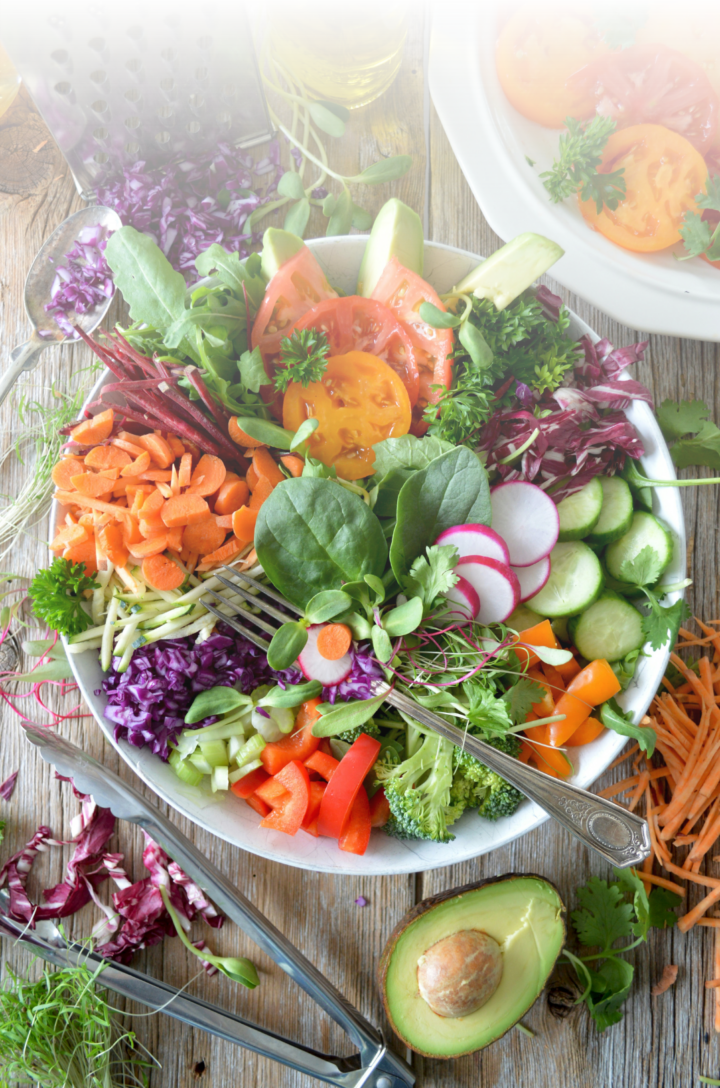During pregnancy, expecting moms are bombarded with information and advice…it comes in plethoras, even the unwarranted (sigh). Everyone is hyper-focused on mom when the baby is in her belly, of course. But once baby is earth-side, the attention often shifts to 100% baby, 0% mom.
We go from prioritizing our body’s needs, to often coming in last. Time, energy and sleep are limited. While this is a natural and necessary part of the journey, it doesn’t mean that we have to – nor should – neglect our own health.
But as any sleep-deprived and overstimulated mother can tell you, it’s not always easy to think (and sometimes even care) about prioritizing yourself in those early days, which is why a little bit of foresight can be your best friend.
Dr. Lana is a Board-Certified Naturopath and Acupuncturist discussing those early days of motherhood. She shares tangible tips and tricks for prepping your body before and after your baby comes. Her holistic and approachable tools can help new mothers ease into this new phase of life as graciously as possible, without consuming too much of their (very) limited time and brain power.
Sometimes those small acts of self-care are ultimately what allows us to show up for what’s most important – your baby.
Postpartum is a beautiful – albeit fragile and exhausting – time. Women tend to go from caring for their pregnant bodies as the number one priority to hardly thinking about their needs once the baby arrives. From a holistic perspective, what advice would you give new mothers to ensure that they are caring for their bodies?
Postpartum is indeed a transformative time, filled with both beauty and challenges. From a holistic perspective, the key is to remember that caring for your own body is not separate from caring for your baby—it’s deeply connected. Here are a few foundational tips:
Nourishment: Prioritize simple, nutrient-dense meals. Foods like bone broths, cooked vegetables, soups, healthy fats, nutrient-dense smoothies, and easily digestible proteins can help replenish energy and support recovery. For breastfeeding mothers, remember that the body needs up to an additional 500 calories a day to support milk production. Breastfeeding also increases water needs, so staying hydrated is critical. To support cellular hydration and adrenal functioning, add electrolytes to your water, as pregnancy gives around 10% of mom’s mineral stores to her baby.
Rest and Boundaries: While sleep can be elusive, rest whenever possible, even if it’s just lying down during your baby’s naps. Lean on your support network and don’t hesitate to set boundaries to protect your energy.
Gentle Movement and Breathwork: Once cleared by your healthcare provider, ease into movement like light stretching or walking. Breathwork can help with stress and support pelvic floor recovery.
Herbal and Nutritional Support: Herbal teas, like chamomile or nettle, can promote relaxation and nourishment. Key nutrients such as iron, magnesium, and omega-3s are essential during this phase, and a high-quality postpartum multivitamin can help fill in any gaps.
Small Acts of Self-Care: Even a few minutes of mindfulness, journaling, or enjoying a favorite book can remind you of your identity beyond motherhood. Insight timer is great if your meditative practice is already more advanced.
The hormonal roller coaster during the postpartum period can be a wild ride. Although it is a natural part of the pregnancy and birthing process, are there any ways that women can assist in balancing their hormones postpartum?
It depends on if mom is breastfeeding, or not. If they are not, supplementation with Vitex, colostrum, silymarin, and fiber can be beneficial. If they are breastfeeding, supplementation becomes difficult but you can support hormones with nutrients like vitamin B, vitamin D, vitamin C, and magnesium.
Prioritizing nutrition and eating a nutrient-dense diet is also foundational. Including those healthy fats like avocado, wild-caught fish, nuts, seeds, and olive oil support hormone production. Protein-rich foods help to stabilize blood sugar, and leafy greens and bright colored vegetables provide essential vitamins and minerals. Eating frequent, balanced meals also prevents blood sugar spikes, which directly affect hormonal stability.
Lactation also plays a role in hormonal balance. Breastfeeding naturally helps the body release oxytocin, which supports uterine healing and bonding. However, if breastfeeding isn’t possible or preferred, there are other ways to promote oxytocin release, like skin-to-skin contact or cuddling. Believe it or not, the thyroid is particularly vulnerable in postpartum, as well. Iodine- and selenium-rich foods, such as seaweed, Brazil nuts, and eggs, can help nourish this gland.
While sleep is elusive with a newborn, aim to rest whenever possible. Even short naps can reduce stress hormones like cortisol. Enlist support from family and friends to make rest a priority.
Physical healing is also a large part of postpartum recovery. Are there any natural remedies that you recommend to promote healing and recovery, both before and after giving birth?
Before giving birth, eating a diet rich in iron, vitamin C, zinc, and protein helps build nutrient reserves. These nutrients are essential for tissue repair and energy recovery postpartum. Around 34-36 weeks of pregnancy, gentle perineal massage can also help improve tissue elasticity, potentially reducing the risk of tearing during childbirth. Raspberry leaf tea can tone the uterine muscles, supporting an efficient labor and quicker postpartum recovery (always consult your provider before starting new remedies).
After giving birth, incorporating natural anti-inflammatory foods like turmeric, ginger, and omega-3-rich fish is also helpful to reduce swelling and encourage healing. But most importantly, rest! You have to let your body heal. Everything else is secondary.
Pelvic floor therapy, breathwork, mat pilates, Yoga (you can even make it Mommy and Me Yoga!) are all great before and after giving birth. Walking is also key. Small steps like always taking the stairs or taking your stroller up and down hills are great ways to add in extra movement once the baby comes.
Beyond the physical act of delivering a baby, postpartum can be a delicate time filled with lots of new feelings and emotions. What are some tangible ways (i.e., supplements, herbs, home remedies) that new mothers can best care for their mental health during this time?
As mentioned, women who are breastfeeding need to remain off supplementation until they are done breastfeeding. If you are not breastfeeding, or once you are done, you can go all in on adrenal support and herbs. That being said, in the meantime, your mental health support will primarily be up to your lifestyle, movement practice and nutritional choices.
A few DIY things you can do that I love are:
- Castor oil packs
- Legs up the wall
- PEMF mat
- Red light therapy (face mask or actual panels)
- IVs (usually it is best to start with a basic myers cocktail)
If you were to prescribe one “remedy” – big or small – to a newly postpartum woman who is short on time (and sleep!) but also wants to care for their health, what would you suggest?
WALKS. Of any length of time. Even around the block. Simply get outside – you will need the reprieve, the fresh air, the peace, the lymphatic movement and the moments alone.
Make sure to establish a healthy prenatal movement routine. The more prone you are to movement prior to pregnancy and throughout pregnancy, the sooner you are apt to get back on the horse POSTpartum, as your body will be naturally craving those endorphins
You can learn more about Dr. Lana and her virtual and in-person services here.
This Babe article was written and contributed by Laura Garber.




